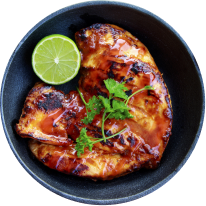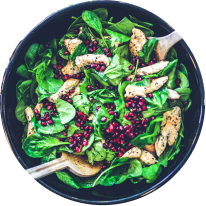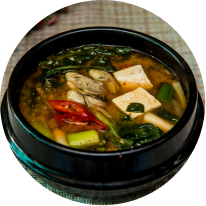How to Cook Well Food
Cooking well is more than just following a recipe — it’s about understanding ingredients, techniques, timing, and passion. Whether you’re a beginner or someone looking to improve their culinary skills, learning how to cook well food can transform your meals from ordinary to extraordinary. In this article, we’ll explore key principles, tips, and habits that will help you become a better cook and consistently prepare delicious, wholesome meals.
1. Start with Fresh and Quality Ingredients
The foundation of good cooking lies in the ingredients. Fresh vegetables, quality meats, aromatic herbs, and flavorful spices make all the difference. Always choose seasonal produce when possible — they’re often more affordable, fresher, and tastier.
Check expiration dates on packaged foods, inspect fruits and vegetables for ripeness and blemishes, and purchase from trusted sources. Remember, even the best chef can’t make a great dish with poor-quality ingredients.
2. Understand Basic Cooking Techniques
Mastering basic cooking techniques is essential. Here are some fundamental methods every home cook should know:
- Boiling and steaming: Great for vegetables, pasta, and eggs. Steaming retains nutrients and flavor.
- Sautéing: Quick cooking in a small amount of oil over medium-high heat. Ideal for vegetables, meats, and stir-fries.
- Roasting and baking: Perfect for meats, potatoes, and desserts. These techniques develop rich flavors through caramelization.
- Grilling: Adds smoky, charred flavor. Works well with meats, vegetables, and even fruits.
- Simmering and braising: Best for soups, stews, and tougher cuts of meat that need slow cooking.
Learning when and how to use each method will dramatically improve your cooking results.
3. Season Your Food Properly
Seasoning is one of the most important aspects of cooking. A pinch of salt or a splash of lemon can elevate a dish from bland to bursting with flavor. Here are a few tips:
- Salt as you go: Don’t wait until the end. Seasoning in layers allows flavors to build gradually.
- Use herbs and spices: Fresh herbs like basil, parsley, and cilantro can brighten up a dish. Dried spices like cumin, paprika, or turmeric add depth and warmth.
- Balance flavors: A well-balanced dish often includes a mix of salty, sweet, sour, bitter, and umami (savory). Taste as you cook and adjust accordingly.
4. Follow Recipes (But Learn to Adapt)
Recipes are great for learning, but the best cooks know when to follow them and when to make adjustments. If you’re just starting, stick to the instructions. Once you become more confident, feel free to tweak the recipe based on your taste or what ingredients you have on hand.
For example, if a dish calls for cream and you only have milk, you can often make it work with a thickener. Don’t have fresh herbs? Try dried ones but in smaller quantities. Flexibility in the kitchen is key to creative, stress-free cooking.
5. Use the Right Tools and Equipment
A well-equipped kitchen makes cooking more efficient and enjoyable. You don’t need expensive gadgets, but a few essentials go a long way:
- A sharp chef’s knife
- A cutting board
- A sturdy frying pan
- A medium and large saucepan
- Measuring cups and spoons
- A baking tray
Maintaining your tools, especially knives, not only improves safety but also ensures smoother, faster preparation.
6. Learn to Prep Like a Pro (Mise en Place)
“Mise en place” is a French culinary term that means “everything in its place.” Before you start cooking, take time to:
- Wash and chop all vegetables
- Measure spices and liquids
- Preheat pans or ovens
- Read through the entire recipe
Proper prep work saves time and helps avoid mistakes, especially with fast-cooking dishes.
7. Don’t Rush the Process
Good food takes time. Whether you’re simmering a stew or roasting vegetables, patience is vital. Avoid the temptation to turn up the heat to speed things up — this can lead to burnt outsides and raw insides.
Let flavors develop naturally. Caramelizing onions, for example, can take 30–40 minutes but adds deep, sweet richness to any dish. Trust the process and enjoy the journey.
8. Practice Food Safety and Cleanliness
Cooking well also means cooking safely. Here are some quick food safety tips:
- Wash your hands and surfaces often
- Keep raw meat separate from other foods
- Cook meats to the correct internal temperature
- Refrigerate leftovers promptly
- Clean as you go to avoid mess and cross-contamination
A clean and safe kitchen contributes to better-tasting and healthier meals.
9. Taste and Adjust
Tasting as you cook is one of the most effective habits of skilled cooks. Try your dish at various stages to see how the flavors are developing. Maybe it needs a touch more salt, a splash of acidity, or a bit of sweetness.
Don’t be afraid to experiment and trust your palate. The more you cook and taste, the better you’ll understand how to balance and enhance flavors.
10. Keep Learning and Practicing
Cooking is a lifelong skill. No one becomes a great cook overnight. Watch cooking videos, read cookbooks, follow food blogs, or take a class. Try new recipes regularly and cook dishes from different cultures to broaden your culinary horizons.
Every mistake is a learning opportunity. Burnt rice or overcooked pasta may feel frustrating, but they’re just steps toward improvement. The more you cook, the better you’ll become.
Conclusion
Cooking well food is both an art and a science. It requires attention, care, and a willingness to learn. By using quality ingredients, mastering basic techniques, seasoning properly, and staying patient and clean, you can consistently prepare meals that nourish and delight.
Whether you’re cooking for yourself, your family, or friends, the effort you put into your food reflects in every bite. So grab your apron, fire up the stove, and enjoy the wonderful world of home cooking — your taste buds will thank you!









